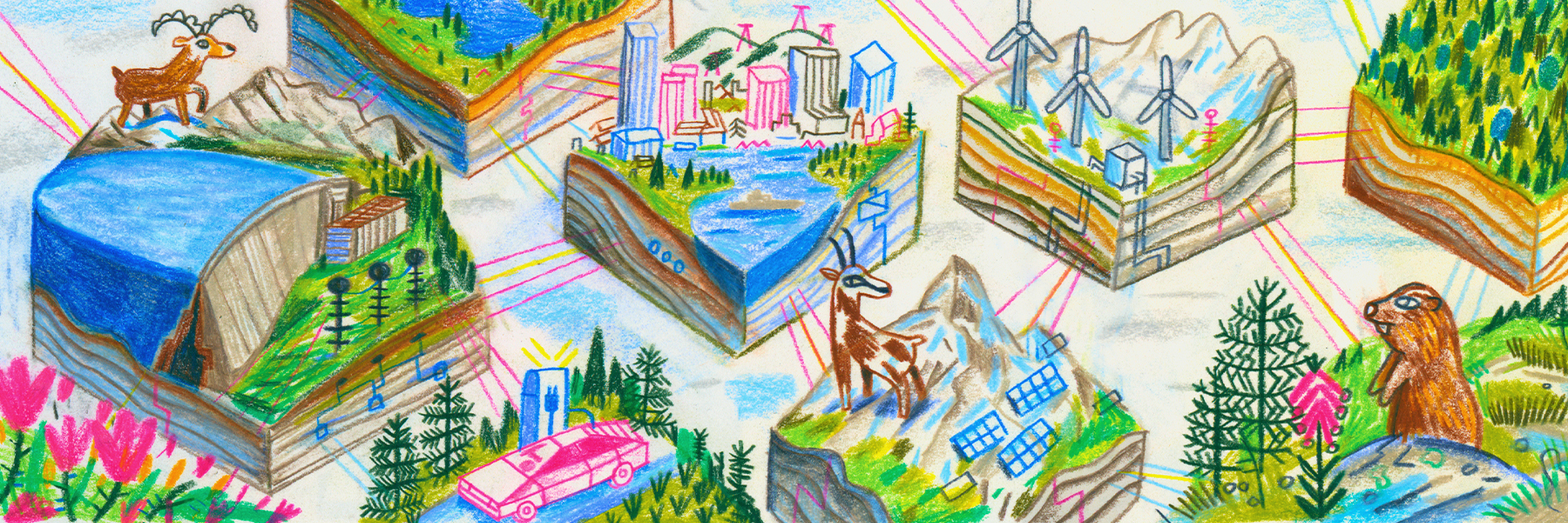
Switzerland lags behind European peers in renewable energy ranking

Switzerland ranks 22nd out of 28 countries in Europe in terms of solar and wind energy production, and is in second-last place compared to the eight neighbouring countries, writes the Swiss Energy Foundation.
+Get the most important news from Switzerland in your inbox
At 11.2%, the share of electricity production from new renewable sources in Switzerland’s total electricity consumption is very low by European standards, the Swiss Energy Foundation (SES) wrote in a press release on its latest study on Thursday. Switzerland only achieved 24th place.
The average value for all EU countries is almost a third (28.3%). Leader Denmark already covers over three quarters of its electricity consumption with solar and wind energy.

More
Swiss solutions for storing the energy of tomorrow
In terms of solar power, Switzerland moved up two places to 11th place in 2024 compared to the previous year, the SES added. Per capita production in Switzerland increased by around 150 to 681 kilowatt hours (kWh) last year despite poor sunshine conditions.
Potential not fully utilised
In terms of wind power, Switzerland remains in 25th place out of 28 with an unchanged low 19 kilowatt hours per capita. The Netherlands is the European leader in solar energy with 1206 kWh per capita and Sweden in wind energy with 3930 kWh per capita.
Although the potential for electricity production from solar and wind energy is increasing in Switzerland, it is still far from being exhausted. Further efforts towards a fully renewable electricity supply are necessary in order to achieve the targets set out in the Electricity Act. The electricity agreement with the EU is also essential, said the SES.
In the short study, SES analysed the status and development of solar and wind energy production in the 27 countries of the European Union and Switzerland. Only Malta, Slovenia, Romania, the Czech Republic, Latvia and Slovakia performed worse than Switzerland.
What is your opinion? Join the debate:
Translated from German by DeepL/jdp
We select the most relevant news for an international audience and use automatic translation tools to translate them into English. A journalist then reviews the translation for clarity and accuracy before publication.
Providing you with automatically translated news gives us the time to write more in-depth articles. The news stories we select have been written and carefully fact-checked by an external editorial team from news agencies such as Bloomberg or Keystone.
If you have any questions about how we work, write to us at english@swissinfo.ch

In compliance with the JTI standards
More: SWI swissinfo.ch certified by the Journalism Trust Initiative































You can find an overview of ongoing debates with our journalists here . Please join us!
If you want to start a conversation about a topic raised in this article or want to report factual errors, email us at english@swissinfo.ch.